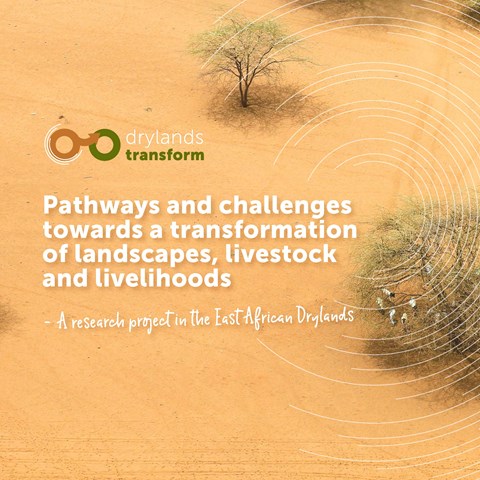Facts:
Drylands Transform is funded by the Swedish Research Council for Sustainable Development, Formas, within their call for ’Realising the global sustainable development goals’.
![]()

Drylands Transform is a project where the links between land health, livestock-based livelihoods, human well-being, and land management and governance will be investigated. The School of Global Studies at the University of Gothenburg invites applications for a two-year full- time postdoctoral research fellowship in Environmental social science.
The position forms part of the four year (2020 – 2024) multi-disciplinary research program Drylands Transform – Pathways & challenges toward a socio-ecological transformation of landscapes, livestock and livelihoods in the East African drylands (www.slu.se/drylandstransform).
The geographical focus of Drylands Transform is the cross-boundary area between Kenya, Uganda, South Sudan and Ethiopia, also known as the Karamoja cluster. The program is funded by the Swedish research council FORMAS and involves scholars from seven different universities and organizations in Sweden and the East African region.
Within the overall aim of the project to contribute to the achievement of the UN Sustainable Development Goals (SDGs) in the East African drylands, the post-doctoral research fellow is expected to conduct his/her research with a specific focus on dryland governance.
Common characterizations of rangelands as marginal, remote and unproductive places have recently given way to an image of these lands as an untapped resource with a development potential that needs to be “opened up”. As a consequence, pastoralists and agro-pastoralists find themselves increasingly confronted by processes of privatization, fragmentation and commodification of land-based resources through infrastructure projects, exploitation of oil and minerals, agricultural expansion, land reforms, and expanding livestock trade.
Following the new political and economic interest in East Africa’s dryland regions, and the land use- and livelihood changes that they generate, the governance of rangelands has emerged as an urgent and strategic academic as well as political challenge. Against this backdrop, the objective of the post-doctoral project is to explore the interplay between regional, national as well as sub-national natural resource institutions on the one hand; and land use practices and strategies at four empirical sites in Uganda and Kenya on the other hand.
Drylands Transform is funded by the Swedish Research Council for Sustainable Development, Formas, within their call for ’Realising the global sustainable development goals’.
![]()
Per Knutsson, Senior Lecturer
School of global studies, Gothenburg University
per.knutsson@globalstudies.gu.se, +46 31 786 42 14